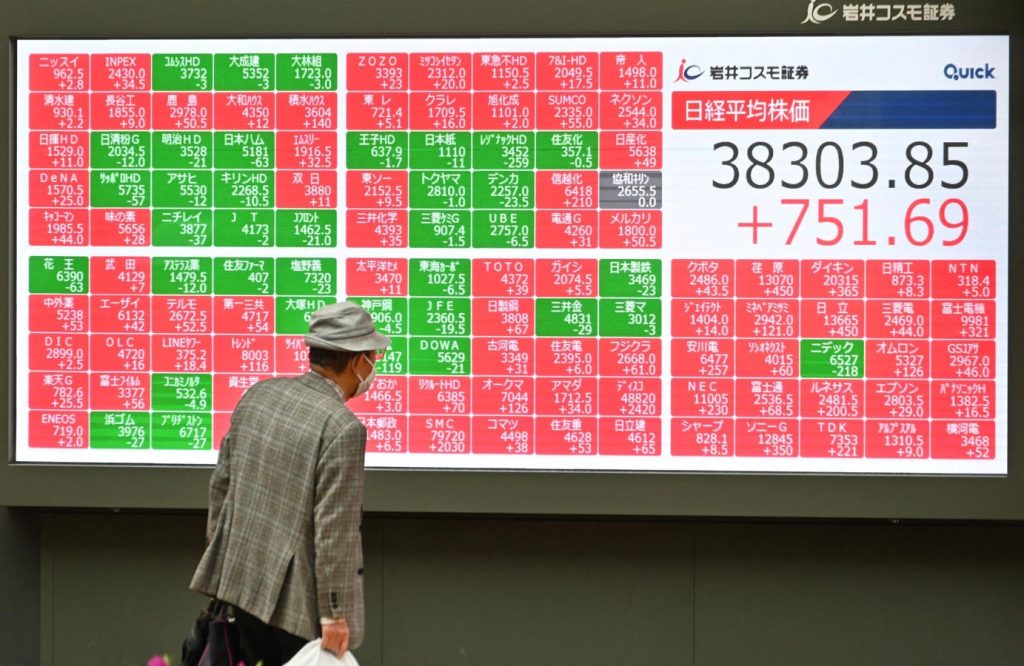The surge in the Nikkei 225 Stock Average over the past year has left Japanese officials facing questions due to a significant gap between economic conditions and the record rally. Despite a 25% increase in the Nikkei, Japan’s gross domestic product contracted by 2% year-on-year in the first quarter. Private construction and capital spending are also stagnant, leading to concerns about the sustainability of the market boom.
Japan’s record tourism boom has been a driving force in the economy, filling hotels, restaurants, and shopping centers. However, the weakening yen has helped boost the economy, and without this factor, Japan could potentially be in a worse situation. This disconnect poses challenges for investors who are increasingly flocking to Japan’s market with enthusiasm, especially in the face of a weakening economic foundation.
Japan’s stock market rally is supported by three main factors: corporate governance reforms, the country’s safe-haven status amid geopolitical risks, and an aggressive quantitative easing program by the Bank of Japan. However, the corporate governance upgrades are facing expiration date concerns, as Japan may need to implement more innovative policies to sustain economic growth and market momentum.
Prime Minister Fumio Kishida’s low approval ratings make it difficult for the government to implement fresh reforms to address the economic challenges. Japan’s dependence on exports also leaves it vulnerable to the impacts of a potential U.S.-China trade war. Additionally, Japan has been stuck in a zero interest rate policy for 25 years, raising concerns about the long-term effects of this economic support system.
The current BOJ governor, Kazuo Ueda, is tasked with normalizing rates policies after his predecessor, Haruhiko Kuroda, implemented a massive corporate welfare program that significantly impacted the economy. Ueda faces the challenge of weaning Japan off monetary steroids without causing catastrophic side effects. The uncertainty around the BOJ’s future actions adds to the complexity of Japan’s economic situation.
As private consumption continues to decline and exports decrease, concerns about Japan’s economic sustainability grow. The Nikkei’s powerful rally, which is up 16% this year, may face challenges as the gap between market performance and economic conditions widens. As Japan approaches 2024, efforts to improve governance and innovation will be crucial in sustaining the market boom and addressing economic challenges.


